Filipino President Rodrigo Duterte has made headlines around the world for his brash rhetoric and vigilante drug war, but it’s his apparent shift in foreign policy which is causing grief for US and Australian leaders.
Last week, President Duterte said the Philippines was pulling out of previously announced joint patrols with the United States in the South China Sea, and will consider arms deals with China and Russia.
The comments came a week after Duterte branded the President Obama a “son of a whore,” pushing Obama to cancel the pair’s first official meeting. He had earlier clashes with both the Australian and US Ambassadors.
Recommended:
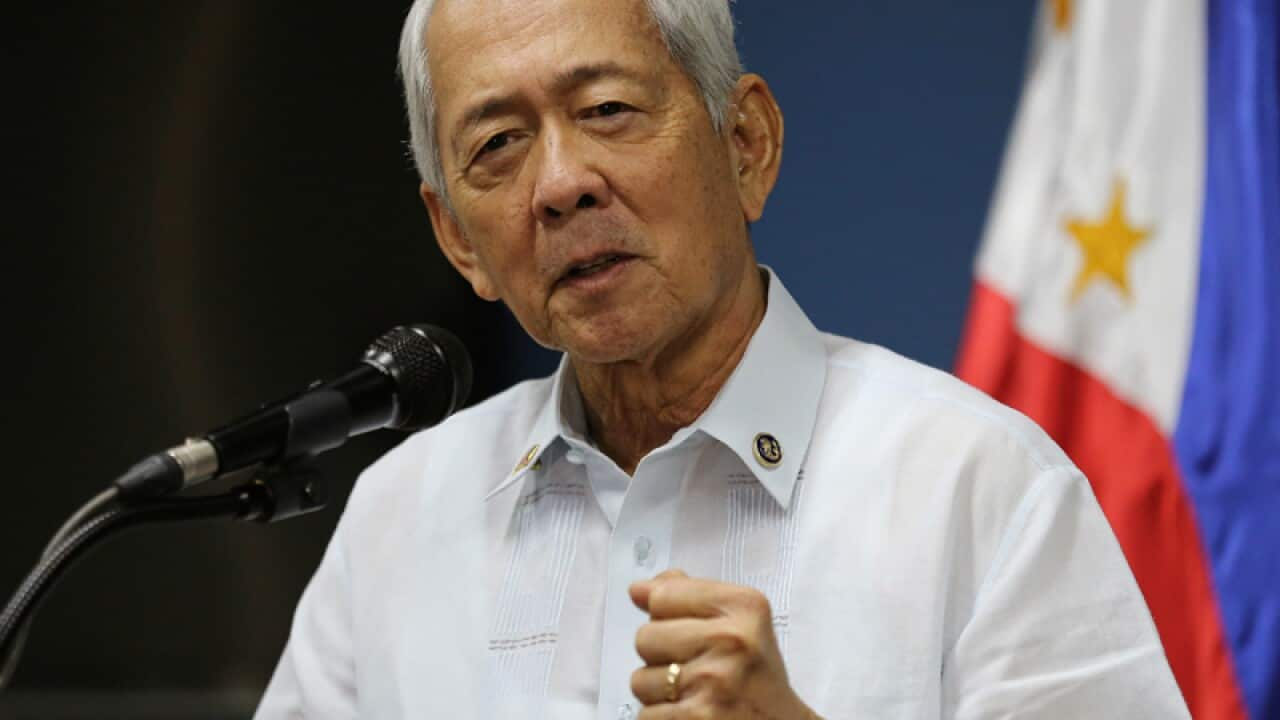
Philippines not US 'little brown brother'
For the US, the relationship with its Filipino ally has become increasingly important as it struggles to share the international stage with an increasingly assertive China.
The Philippines’ location, bordering the South China Sea, is an asset for America as it pushes back against China’s attempt to assert sovereignty over significant swathes of the South China Sea while illegally constructing military infrastructure on disputed islands.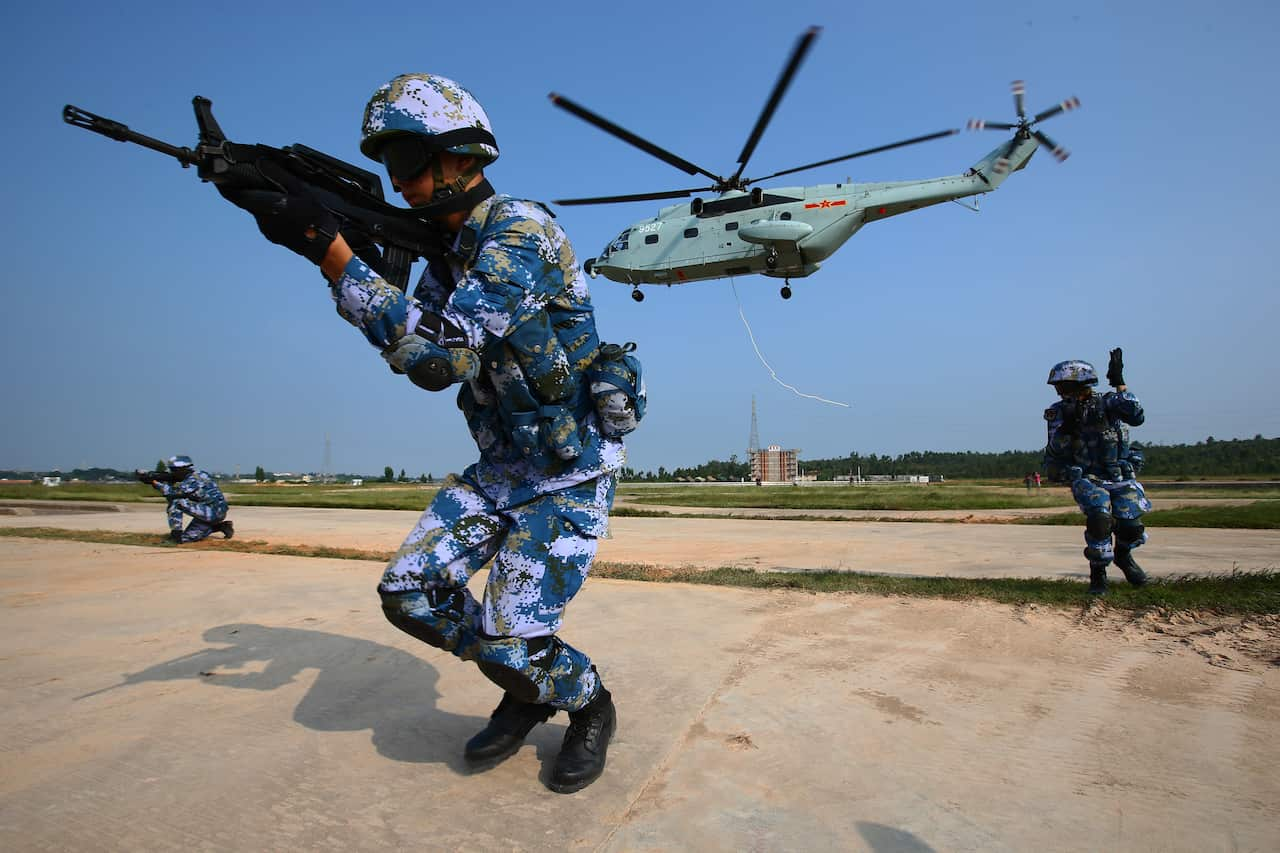 Malcolm Davis, a senior analyst from the Australian Strategic Policy Institute, told SBS that Duterte’s most recent statements were potentially a major shift.
Malcolm Davis, a senior analyst from the Australian Strategic Policy Institute, told SBS that Duterte’s most recent statements were potentially a major shift.

Marines take part in a joint naval drill in Zhanjiang, south China's Guangdong Province, by the South China Sea on Tuesday Sept. 13, 2016. Source: (Zha Chunming/Xinhua via AP)
“If he actually follows through on his announcement with actual policy of changing the Philippines' dependence from the US to Russia and China, this is highly significant,” he said.
Davis said this week’s comments would be causing consternation in Washington and in Canberra as they face the prospect of China gaining increasing influence.
The Filipino leader may be making a calculated decision that he has more to gain from Beijing and Moscow, Davis said, or he may be making a power play.
For the full text of the Australian analysts thoughts, click here
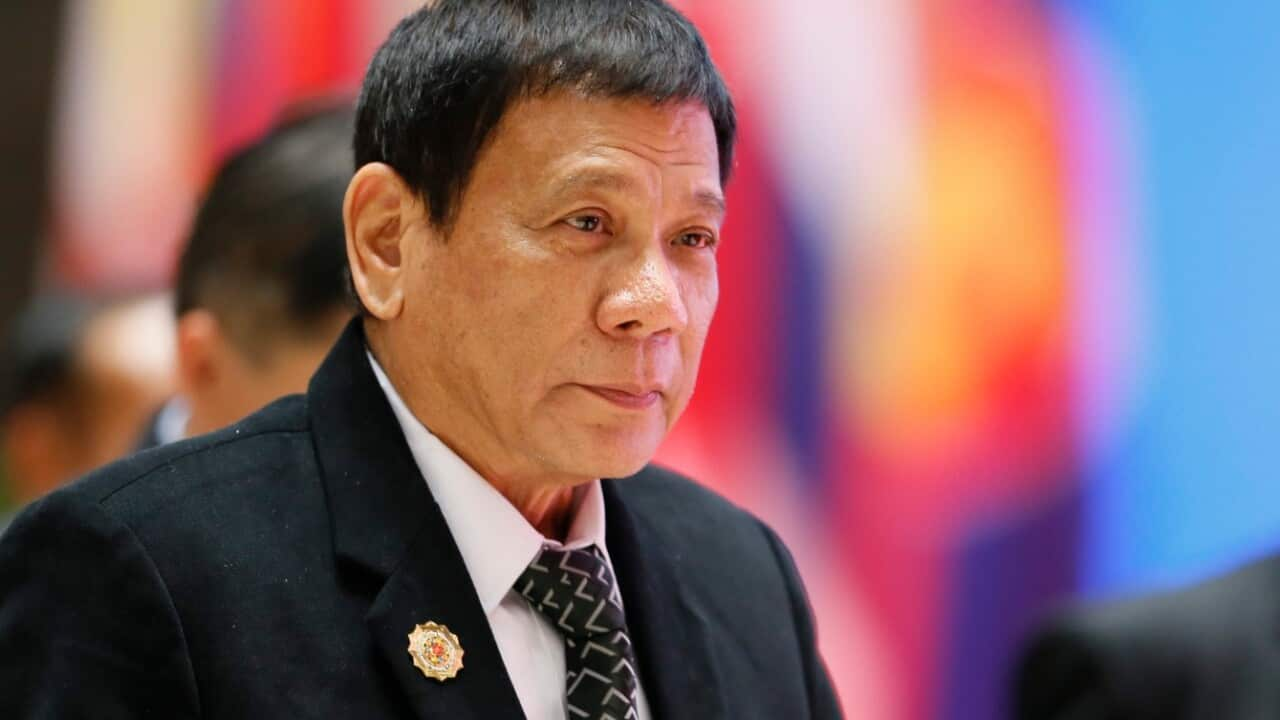
Full Text: Australian analysts on the Philippines and the South China Sea
“He could be seeking to play Washington off against Beijing and Moscow to get a better deal,” he said, comparing the President’s decision-making to that of Donald Trump.
“He thinks he is in a strong position, and all sides will come to the table to give him what he wants – very Trump-like – but I don’t see the US being suckered into such a play,” he said.
“Or he may have decided that there is nothing he can ultimately do to prevent China from taking further Philippines territory and it is better to be closer to Beijing and Moscow than Washington,” Davis said.
“I think it also reinforces concerns that Duterte is completely unpredictable and potentially has no rational understanding of the strategic environment in which he is ruling,” he said. 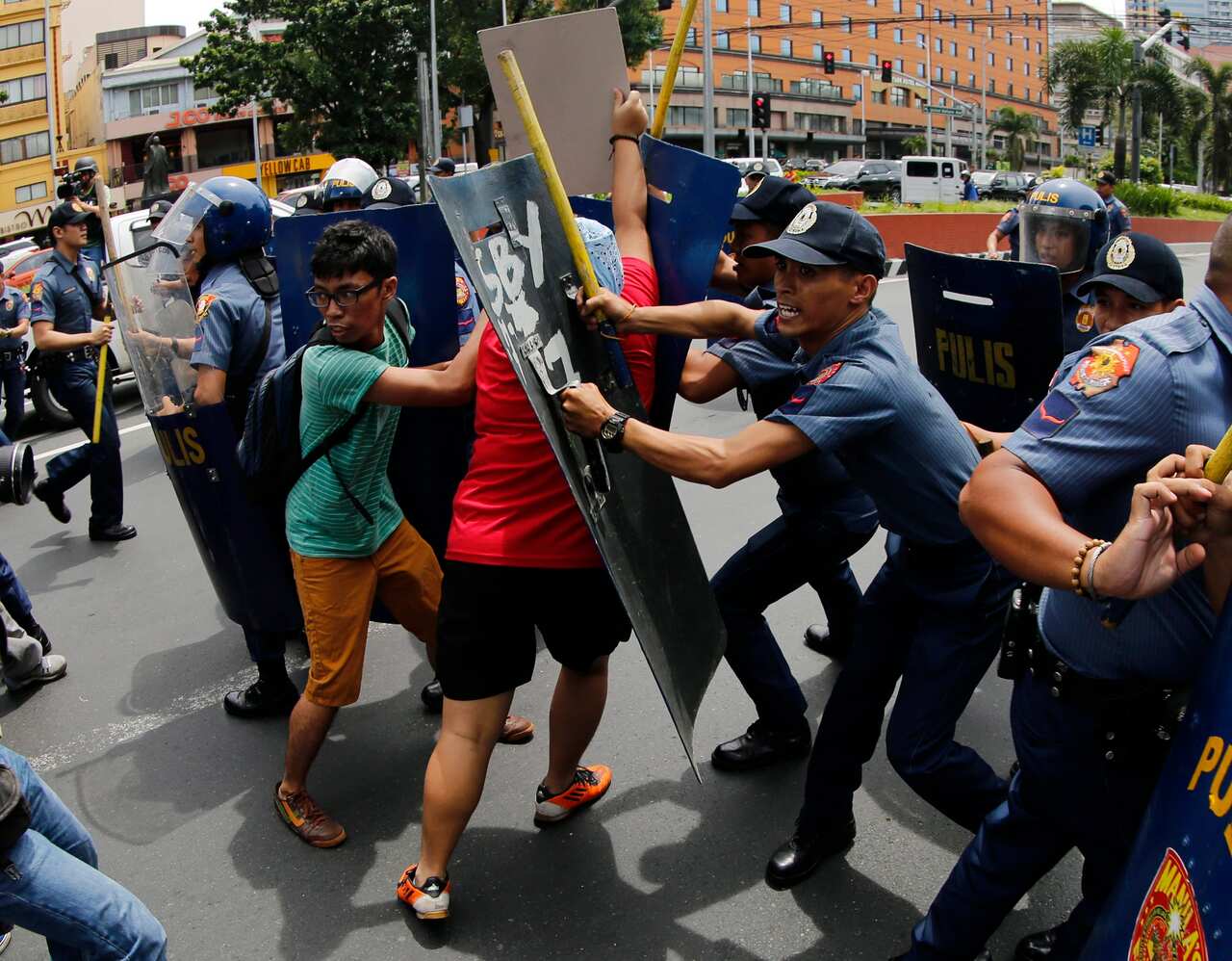 Earlier this year, the Philippines won an international legal case against China’s claim over Filipino waters, a claim China rejected and has consistently sought to undermine.
Earlier this year, the Philippines won an international legal case against China’s claim over Filipino waters, a claim China rejected and has consistently sought to undermine.

Filipino activists scuffle with policemen during a protest rally in front of the US embassy in Manila, Philippines, 16 September 2016. Source: EPA/FRANCIS R. MALASIG
Australian Foreign Minister Julie Bishop said she was “surprised” the Philippines had backed away from joint patrols to reinforce its legal win.
Malcolm Cook, a Fellow at the Lowy Institute for International Policy, told SBS that while the move was symbolically very important, it may prove to be mere political posturing.
Cook said the country’s joint patrols were more symbolic than substantive anyway, and the government had previously derided the quality of Chinese weaponry.
“There is likely more bark than bite here,” Cook said, “we are very early into Duterte's single six-year term and so the likely policy directions for the administration and how they differ from those of the Aquino administration are being determined now.”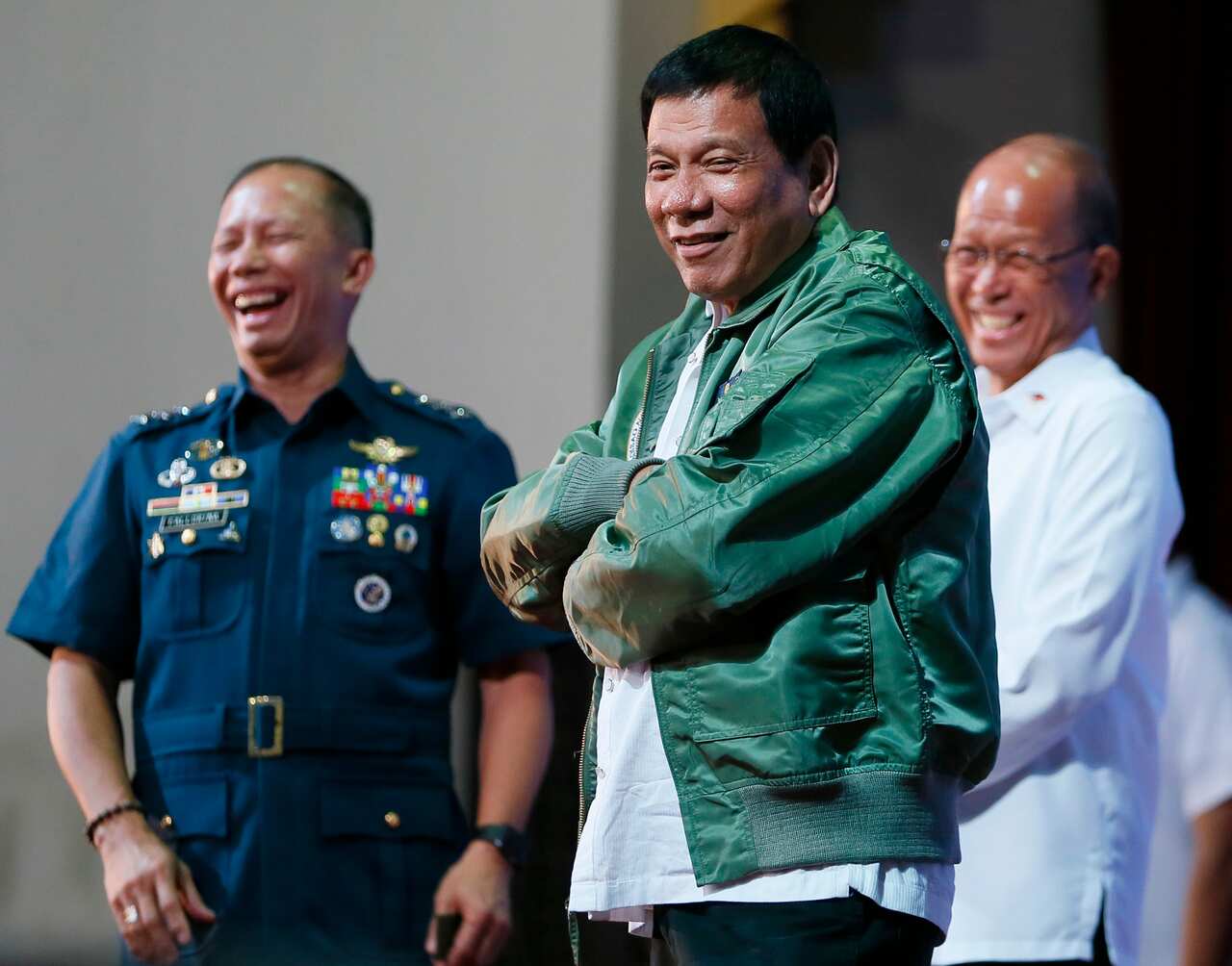 The previous Filipino administration was battling high levels of drug trafficking and two violent insurgencies, while also attempting to shift security resources to protect its territory from Chinese claims in the South China Sea.
The previous Filipino administration was battling high levels of drug trafficking and two violent insurgencies, while also attempting to shift security resources to protect its territory from Chinese claims in the South China Sea.

Duterte wears a pilot's jacket presented to him during his "Talk with the Airmen" on the anniversary of the 250th Presidential Airlift Wing Sep 13, 2016. Source: (AP Photo/Bullit Marquez)
Cook says Duterte is reversing that shift.
“Philippine weapons purchases and force structure are being reoriented again towards these internal threats and away from the maritime domain,” he said.
Duterte’s willingness to engage in direct negotiations with China could present a challenge for America. The US prefers a legal or coalition-based approach, while China has been seeking to resolve the territorial disputes with countries individually and directly.
“Duterte also has a more skeptical view of the present value to the Philippines of the alliance with the US and the broader historical relationship, colonial and post-colonial,” Cook said, “and that this is affecting his views of Philippine foreign policy.”
Regardless of what’s motivating Duterte’s latest manoeuvring, it’s clear that his administration will continue to pose a challenge to policymakers in the US and Australia for some time to come as their ability to influence the region wanes.
“The US won’t want to see greater influence by Beijing or Moscow in Manila,” Davis told SBS, “but it may be that Duterte’s bull in a china shop mindset, combined with domestic US political timelines associated with the election, make their ability to act constrained.”





